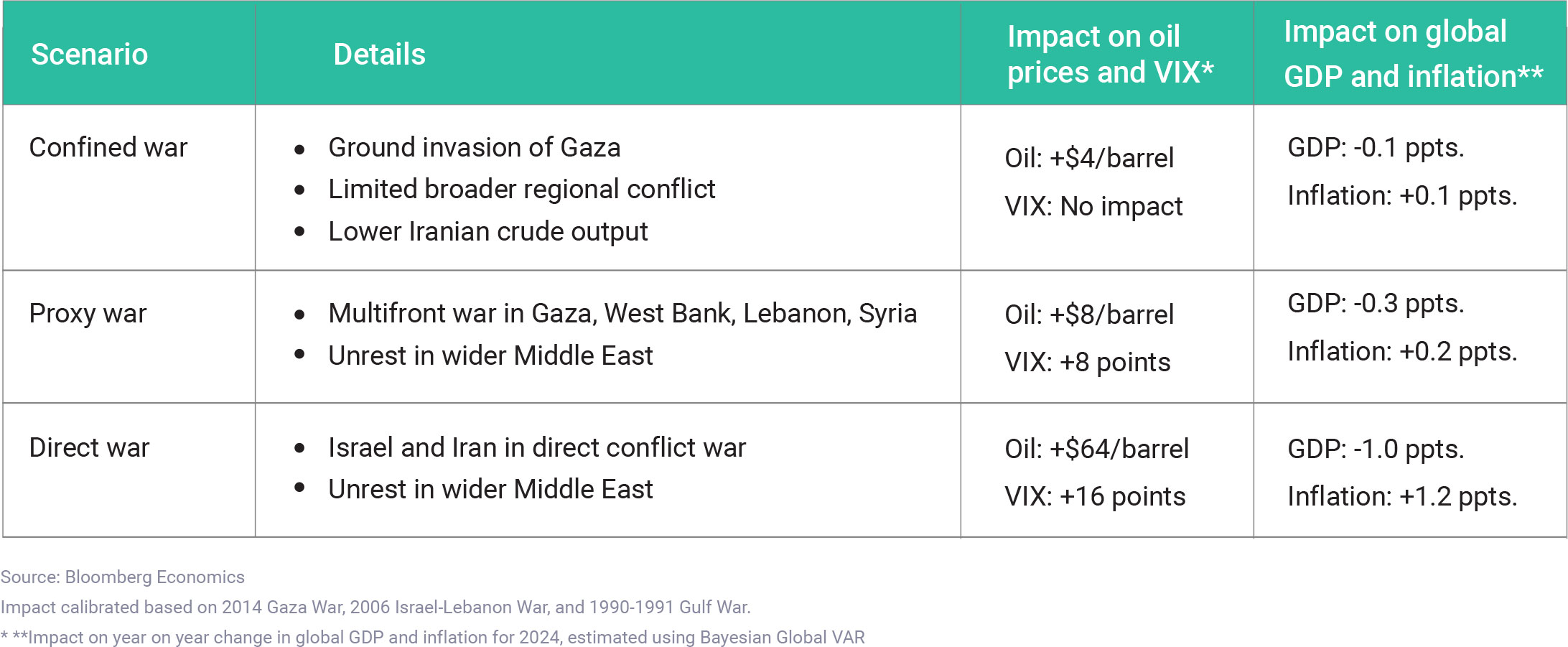As the world economies were recovering from the
COVID-19 pandemic and the Russia- Ukraine war. The
world was dealing with high energy prices, global food
shortages and inflation because of the Russia-Ukraine
war. Both the developed world and the emerging
economies are growing far slower than expected. The
International Monetary Fund (IMF) estimates that global
growth will slow down from 3.5% in 2022 to 3% in 2023
and to 2.9% in 2024, well below the historical average of
3.8%.
IMF reported that despite war-disrupted energy and food
markets and unprecedented monetary tightening to
combat decades-high inflation, economic activity has
slowed but not stalled. Even so, growth remains slow and
uneven, with widening divergences. After considering the
impact of Israel Hamas war, global inflation spurted to
9.2% in the aftermath of the Russian invasion of Ukraine
and fell to 5.9% in 2023 as central banks across the world
raised as central banks across the world raised interest
rates to cool down the high prices. The IMF projected
inflation at 4.8% in 2024. A report by Bloomberg
Economics considers the Israel-Hamas war's likely
impact on global growth and inflation under three
scenarios- Confined war, multifront war and direct war.
For the Indian economy, the oil prices and rising US bond
prices are major concerns. India is a net importer of
crude unstable prices would affect the future
macroeconomic stability. Currently, India continues to
have economic stability but the spike in crude prices can
put India in difficult economic conditions. The impact of
the Israel-Hamas war on India can be summaries as:
· High import bill which would widen the current account
deficit- high crude prices would worsen the government’s
fiscal deficit and widening the current account deficit
would impact currency adversely, in turn affecting
sectors like auto, aviation, paints and chemicals. Every
10-dollar rise in Brent crude prices widens India’s current
account deficit by 0.5%. Consequently depreciating the
Rupee leads to imported inflation.
· Weakens the Indian Rupee – paying for high crude oil
can increase the demand for dollars hence weakening
the rupee against the dollar.
· Oil Marketing companies incur losses- rising crude
prices would have a significant impact on some specific
stocks and the broader economy. The Indian crude oil
basket has averaged ~ $80.1 per barrel in the first five
months of FY24. Instead, the price of the Indian crude
basket touched $90.7 per barrel in the first week of
September. High international oil prices will raise the
average Indian crude basket price and the oilmarketing
companies (OMCs) including Indian Oil, Bharat
Petroleum Corp Ltd (BPCL) and Hindustan Petroleum
Corp Ltd (HPCL), will register losses in gross refinery
margins.
· Inflation pressure - According to the Reserve Bank of
India (RBI), the sustained increase in prices is expected
to lead to a lower aggregate demand as households and
firms are left with less disposable incomes to spend on
non-energy goods. This is how domestic consumer
prices respond to an oil supply news shock.
· Higher fiscal deficit – The government often subsidizes
fuel prices to protect consumers from the impact of
rising oil prices, if crude continues to rise the government
may need to subsidise a part of the price increase which
would lead to a higher fiscal deficit. The country’s GDP
numbers would be affected.
ECONOMIC IMPACT OF WAR
Global growth and inflation impact of three scenarios for how the Israel- Hamas conflict could evolve


